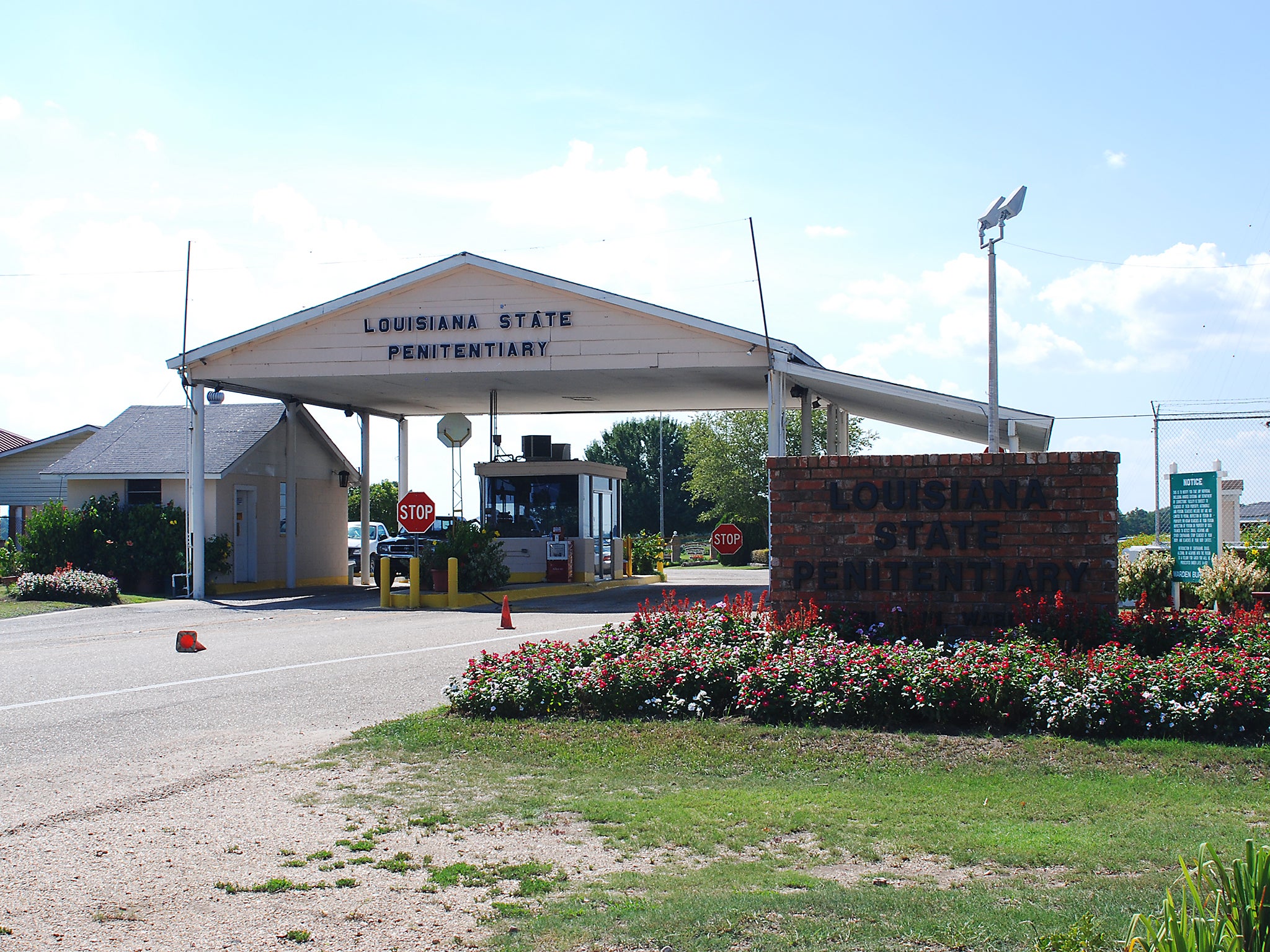Coronavirus: Louisiana slammed for 'deadly' plan to move all infected prisoners to America's largest Supermax
Lawsuit says healthcare capacity at notorious Angola prison ‘unconstitutional at worst and severely overtaxed at best’

Louisiana plans to house coronavirus patients who are jailed in prisons across the state at a notorious prison under fire for unconstitutional medical care and “cruel and unusual punishment” in a series of lawsuits.
According to the state’s Department of Corrections, people who test positive for the virus while in custody — including people who have not been convicted of crimes and are awaiting trial — could be moved to Louisiana State Penitentiary, also known as Angola, a former plantation and now the largest maximum security in the US. Critics say patients will be sent there to die.
While several states have moved to release some of its incarcerated populations from potentially dangerous environments that could be breeding grounds for coronavirus, local jails in Louisiana without the capacity to house and treat Covid-19 patients have been told to send them to Angola, the department has said.
Last week, the Promise of Justice Initiative and the American Civil Liberties Union of Louisiana filed a motion to prevent the state from transferring sick patients to a facility with “sub-par medical care” that puts thousands of people at risk for infection and death.
Counsel Ben Cohen said moving those patients will ensure that they have “no access” to a hospital or constitutional medical care, effectively creating "death camps" at the prison.
In 2018, a federal judge certified a class action suit on behalf of people inside the jail alleging a lack of constitutionally adequate medical care.
According to reports, coronavirus patients will be held at Angola’s restrictive Camp J, a solitary confinement facility that was closed in 2018 after a brutal 40-year reputation for its poor conditions.
“It’s a punishment camp designed to inflict fear,” Mr Cohen told The Independent.
Mr Cohen said people in custody across the state, once they realise they could be housed in the facility if they test positive for the virus, could make conditions worse in other jails by hiding their illness and symptoms.
“It’s the exact opposite of where you want to go,” he said. “Anyone with fever, the last thing you want to do is test positive.”
More than 50,000 people are in custody in roughly 100 facilities across the state. Angola houses 6,000 of them.
“One couldn’t devise a system more contrary to current public health recommendations” — including guidelines issued by the White House — than the ones imposed by the state’s penitentiary, correctional medicine expert Dr Michael Puisis said in a statement.
For patients who need ventilator support, which is not available at the prison, “they would die,” Mr Cohen said. “It seems like a system to ensure as many people die without treatment.”
If state officials intentionally bring patients into the prison and treat them at the infirmary, which plaintiffs say is the “only place at [the prison] where even moderate cases of Covid-19 could conceivably be treated,” the infection could lethally spread throughout the prison, similar to deadly outbreaks in nursing homes.
The prison also has a large number of elderly and immunocompromised people and people with other chronic health conditions.
The plaintiffs argue: “Defendants will be intentionally and willfully exposing the most vulnerable people in the entire ... system to an unconscionably high risk of death or serious harm.”
Angola’s capacity to house patients is “unconstitutional at its worst and severely overtaxed at its best,” risking not just the patients in its care but the medical personnel and jail staff exposed to them.
“This will exacerbate the already unconstitutional risk to which Defendants subject Class members, and result in avoidable suffering and death,” the counsel argues.
Louisiana has long held the title as the incarceration capital of the world, with wildly disproportionate rates of imprisonment per capita and harsh sentencing guidelines that have jailed people for years beyond similar offences in other states.
The state also has had one of the highest per capita rates of coronavirus infection in the US. The New Orleans area has had the highest per capita death rate, more than double that of New York City, despite just a fraction of the population.
Black residents in the state account for roughly 70 per cent of the state’s coronavirus deaths, according to the state’s Department of Health, but black residents represent only 32 per cent of the state’s entire population.
Of the number of incarcerated people in the state, 66 per cent are black.
Last month, Patrick Jones — a black man who was serving a 27-year sentence for a nonviolent drug-related offence at the Federal Detention Center at Oakdale — was the first reported incarcerated person to die from the virus in the US.
He hadn’t seen his youngest son, then 16, since the child was a toddler.
In a letter to US District Judge Alan Albright seeking a reduction in his sentence, he wrote: “I feel that my conviction and sentence was also a punishment that my child has had to endure also and there are no words for how remorseful I am ... Years of ‘I am sorry’ don’t seem to justify the absence of a father or the chance of having purpose in life by raising my child.”
He wrote the letter last October. The judge denied his request in February.
Following his death on 28 March, four others have died at the jail
Join our commenting forum
Join thought-provoking conversations, follow other Independent readers and see their replies
Comments
Bookmark popover
Removed from bookmarks